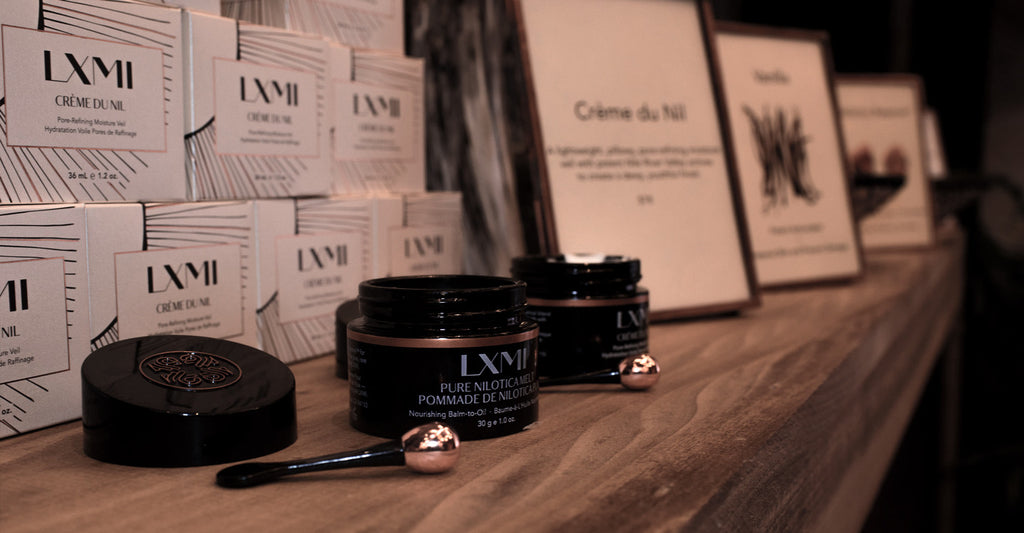Last week, our team headed to Las Vegas for the annual Sephora Store Directors of America conference. Amid the 110 degree heat, showgirls, and magicians (really, we watched Criss Angel saw someone in half!), we discovered a few keys to dominance in the multi-billion dollar beauty industry.
The biggest lesson? People still love buying stuff from other people. Especially when those other people are fired up, knowledgeable, and impartial. And especially when there’s an element of social good in the store environment.
#1 Give Unbiased Advice
For those who aren’t familiar, Sephora is a multi-retail environment for discovering new beauty and skincare brands, and it’s KILLING the traditional department store model for buying premium products. Named after the wife of a Greek goddess and owned by French luxury behemoth LVMH, the company jas distinguished itself for a unique store environment packed with glittering wares.
Sephora's "Inspire. Teach. Play.” message resonates with younger consumers — women visit stores as a social experience, learning about new beauty trends, chatting with friendly, well-trained “cast members” (Sephora sales reps), and getting unbiased advice. Sales reps aren’t commissioned and are encouraged to recommend multiple brands, a major departure from the typical department store model, where each brand has its own counter and displays products behind a glass wall, accessible only by commissioned sales reps.
Unbiased advice is why so many women flock to beauty blogs and choose services like Ipsy and Birchbox — they want to learn which products work best for them in a pressure-free environment. People value curation and the kind of editorial whimsy that elevates products to aspirational lifestyle goods. This is what Sephora provides — it’s as if an editor’s hand-picked products jumped out of Vogue and onto your vanity.
#2 Don’t Underestimate Play
The Vegas conference was unlike anything I’d ever seen. Our CMO Thea, a veteran of the Sephora experience, told me to “expect a rave — literally” and she wasn’t exaggerating. Before the company’s CEO took the stage on Tuesday, all 1,000 store directors and corporate staff (dressed in the official black, white, red and gray dress code) stood cheering and dancing to pop songs thumping through the ballroom’s sound system; at key moments in his speech, confetti exploded from the risers over all of us.
This kind of thing doesn’t happen at tech conferences. I was unprepared. And all the buzz drove home a key theme for me: Sephora is a retail environment that breaks the conventional rules of selling. In their stores, you are encouraged to touch, smell, try on, take off, and basically run amok with beauty products. If you hate it after you buy it, you can return it.

Copper flash tattoos that we'll be gifting our Activist Members this fall.
Think Play is silly? Think again. This philosophy drives solid growth in brick and mortar and insane growth online, even amid Amazon and home delivery services. I can’t share the numbers from the CEO’s presentation, but they’re impressive enough to make me write a blog post about them.
#3 Honor People
The 1,000 mostly women store directors oozed joy and energy, jumping up and down to slogans like “Forever Fearless” splashed on giant screens. This is Sephora’s magic: attracting and promoting talented people who love beauty and makeup, and letting them go wild.
My mentor in Sephora’s Accelerate program, their just-launched accelerator, is a 16-year company veteran who started as a store manager and worked her way up to a VP position. Her sister also works for the company. As does her husband.
A quick survey of the people at HQ revealed that many of them have been at Sephora for a very long time. They grow with the company, appreciate female-friendly perks like free IVF treatments (I’d venture to say women much prefer this to free snacks and foosball), and adore the company vibe, which is all about fun.
Beyond Beauty
I was raised to think that skincare and makeup products were silly and superficial. Magazines like Vogue and Cosmopolitan were banned in my house - my mother, an archfeminist, thought these “women’s interest” subjects were all fluff and encouraged us to read books on physics and philosophy instead.
Today, women realize that the two aren’t mutually exclusive. We can have fun with our hair and makeup while we get phDs in astrophysics or build NGOs in sub-Saharan Africa. Millennials embrace a fuller feminism, the kind that gives every woman freedom to choose her own career (or non-career) path, express herself through her aesthetic choices, and forge an independent identity.
Human commerce is all about play, interaction, and a deep need for connection. Sephora satisfies these needs. The launch of Sephora Accelerate, which brought LXMI to the attention of the merchant team and honed our brand vision and formulas, takes this connection one step further — for the first time, a major luxury beauty retailer is helping small fair trade, organic, and sustainable brands achieve scale.
Donating a small percentage of profits only goes so far — the only way to make commerce fully human is to respect the people deep in the supply chain for our goods and services. This means valuing the (mostly) women who pick our raw ingredients, the people who mix and bottle it in our factories, and the workers who pack and ship our products around the world. LXMI does this by sourcing from poor places with little economic opportunity, and ensuring workers are paid a local living wage.
Retail stores aren’t dead. The future of commerce is connected and human — and Sephora gets this like few other chains. It’s why we’re making a big bet at LXMI to focus on this channel and on home shopping with QVC (details in a forthcoming letter) versus building our direct to consumer channel.
For more, tune in Friday August 19th at 9am PT on my Facebook Page, where I’ll discuss this and other insights from the Sephora brand fair.
x
Leila




